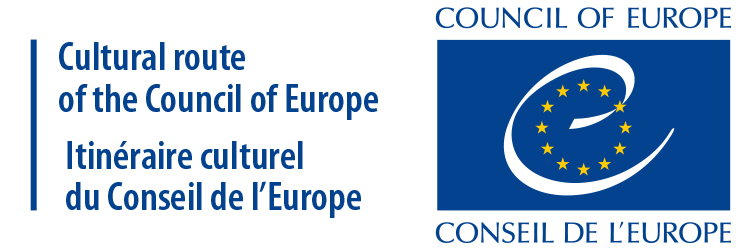Meet Hanna Kalmenson, Executive Managing Director at B'nai B'rith Europe.
"Intercultural dialogue allows the integration of concepts specific to one's own culture, through the mirror held up by the other"
What is B'nai B'rith Europe? Where do you operate?
B'nai B'rith is the oldest Jewish organization dedicated to making the world a safer place and creating a more inclusive society. B'nai B'rith Europe (BBE), part of the B'nai B'rith International organization, is dedicated to promoting tolerance and understanding between groups.
Its actions are aimed at advancing human rights through the following areas: overcoming racism, xenophobia, and antisemitism, enhancing knowledge of the Jewish presence through culture and heritage, supporting the State of Israel, helping those in need, and preserving the memory of the Holocaust.
B'nai B'rith Europe is actively represented in 24 European countries.
What is your role in this institution?
I manage the Brussels office which is the central point of support and coordination of the European Lodges. It is also the representation of BBE at the European institutions.
An essential part of my role is to develop European projects initiated with the President of B'nai B'rith Europe, Serge Dahan, and the Board, in close coordination with the European Commission.
We organize events regularly and coordinate actions on a European scale, with the support of the Lodges. Additionally, the Brussels office is dedicated to creating efficient communication tools in order to enhance the interaction between the Lodges as well as to promote their actions.
Finally, developing partnerships with like-minded organizations is a crucial aspect of my position. Together, we go further, we mutually reinforce our efforts and multiply our positive impact. Therefore, we give great importance to the development of complementary partnerships that allow us to engage in holistic initiatives, such as the NOA project (Networks Overcoming Antisemitism).
How did you come to work at this institution? What is your career path?
I was born into an ultra-orthodox family that is fully committed to educational projects for the Jewish community. Therefore, I was immersed since birth in an environment where every action had a meaning and was directed by a noble intention.
After obtaining a teaching degree, circumstances brought me to work on the launching of Jewish institutions in the European quarter. This experience enabled me to develop management skills.
After about ten years, I felt the urge to explore other cultures, which led me to my own non-dogmatic spirituality. During this identity reconstruction, I worked in the corporate world, completed my initial training with a degree in management and project management. I integrated the tools of mediation and followed other citizenship modules.
When BBE published its search for a management position, I felt it was time for me to go back to my origins and to infuse in the jewish community the openness I had experienced. The recent arrival of the current president fostered an ambition for renewal, which corresponded to my aspiration.
BBE's core identity and its universal values allow me to apply this sentence that I find meaningful :'If your actions are made of everything that composes you, where you come from, who you know, and your history, then you have a chance to connect with everything else.'
This is the golden thread that I am following in my professional path and that I aspire to apply within my life choices in general.
Leading a European network with hundreds of lodges is a big adventure. How do you face this challenge?
Indeed, it is an adventure. I believe the recipe is teamwork and balance between the micro and macro-management.
I can count on the continuous support of BBE's board, the family spirit of BBE, its inherent values, and the full dedication of my direct colleagues.
It's a human adventure after all. Every encounter and experience is enriching. Open communication is essential and it allows a constant evolution.
The force of a Network is unity and complementarity. Each Lodge has its own specificity and a unique added value. Recognizing each other's strengths, empowering each actor, focusing on the shared values and on the goals are great tools to strive in this position.
What is the role of the Jewish Culture in the EU nowadays?
People often wonder what being Jewish actually means.
Culture allows us to explore this question in all its diversity. It connects us to the past and paves the way to the future. Culture emphasizes the specificity of a group but also brings out what deeply connects humans to each other by establishing links beyond what seems to oppose them.
Being Jewish is primarily a birth circumstance, but it is also a choice. How will this identity be lived and expressed? How will it evolve through life challenges? How will Jewishness interact with the other parts that make up a person's identity?
One of the characteristics of the Jewish culture is its contribution to the evolution of humanity by spreading light and knowledge. This is expressed on the ethical, scientific, literary and philosophical levels, among others.
Today, one of the roles of Jewish culture is to overcome antisemitism through a resolutely positive and educational approach, by emphasizing the positive contribution of Jews to Europe. For instance, sharing lessons and best practices we acquired throughout history.
Surely, Jewish culture has been built through numerous forced migrations and has generated a strong resilience, experiences that are extremely relevant today.
BBE, together with organizations such as CEJI (a Jewish Contribution to an Inclusive Europe) and HIAS Europe (global Jewish humanitarian organization and refugee agency), among others, are making resources available to meet these challenges.
The B'nai B'rith Lodges celebrate the European Days of Jewish Culture extensively. Why do you think it is important to share Jewish culture with non-Jewish audiences?
Promoting Jewish culture is deeply rooted in the values and the history of B'nai B'rith.
It is important for both Jews and non-Jews. It is one of the key answers to today's challenges. In fact, encounters with other cultures are essential to individual enrichment and to living together.
I find it interesting to point out that inter-cultural encounters induce an openness that does not in any way call into question the particular identity of each person. On the contrary, it allows a stronger internalization of one's own culture.
Actually, intercultural dialogue, especially when it starts from a stable identity framework, allows the integration of concepts specific to one's own culture, through the mirror held up by the other.
Moreover, it is a real cement for living together. As we live in an increasingly polarized society, education, dialogue, and culture are necessary more than ever.
It is the responsibility of each and every one of us to know ourselves deeply, to recognize the other, and to embrace otherness.
Sharing one's culture with society as a whole is, therefore, part of our duty in order to co-create peace in this world.
What challenges do you have ahead of you for this 2021?
One of the challenges for 2021 is to move from crisis management to a profound renewal.
In terms of project management, we have to deal with uncertainty with tremendous flexibility, while continuing to meet defined objectives.
We strive to turn challenges into opportunities, while adapting to the current restrictions.
Indeed, limitations have the particularity of creating new spaces, revealing new possibilities, as well as unsuspected resources.
A welcomed constraint can thus be a source of liberation and evolution.
Apart from the NOA project and the numerous projects in progress, BBE is currently working on a new constitution with the goal of renewing the movement from within. This new constitution will create a more suitable structure that will allow BBE to continue to address the current and future challenges, while strengthening its unity and increasing its efficiency.



